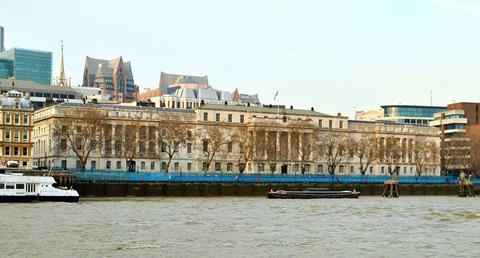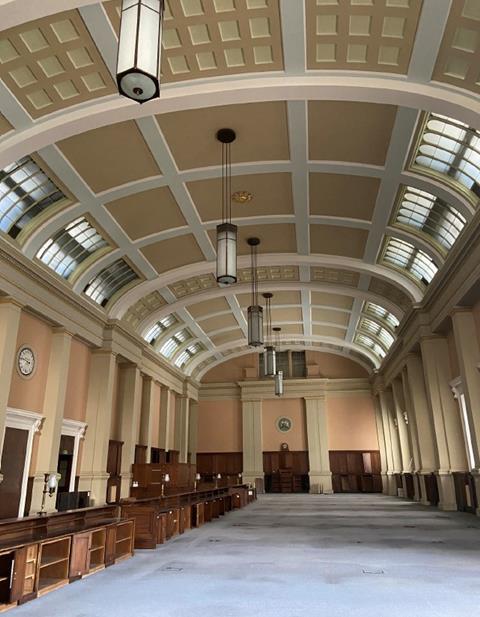Hotel conversion proposals would have “too great” an impact on grade I landmark

Squire & Partners’ proposals to convert London’s grade I-listed Custom House into a 200-room hotel have been rejected by a planning inspector because of the impact they would have on the Thames-fronting building.
The practice’s plans for the early 19thcentury building – designed by David Laing and Robert Smirke – called for the introduction of new roof terraces and would have seen the building’s east block largely rebuilt behind existing façades.
Squire’s scheme was drawn up for Cannon Capital Developments and Globalgem Hotels, now Global Grange Hotels. It has drawn opposition from campaign group Save Britain’s Heritage, the Georgian Society, London and Middlesex Archaeological Society, the Society for the Protection of Ancient Buildings, and the Ancient Monuments Society.
Government heritage adviser Historic England did not object to the proposals but said the plans would cause a “low level of harm” to the existing structure and left the City of London to determine whether public benefits outweighed the harm.
The applicants launched an appeal on the grounds that Square Mile planners were taking too long to decide on the proposals. Members of the City’s Planning and Transportation Committeevoted to oppose the scheme in October last year, after the power to determine the application had passed on to an inspector.
Planning inspector Paul Griffiths presided over a 13-day hearing into the proposals spread over January and February this year.

In his just published-decision, he said it was clear that Custom House – which was a base for HM Revenue & Customs until last year – would require some interventions if a new use for the building as a hotel was necessary.
Griffiths称赞Squires对在如此重要的建筑中容纳酒店的“困难需求”做出了“最值得称赞的”回应。但巡视员说,他对这些提案可能造成的伤害程度,与英格兰历史博物馆的看法不同。
“The scheme would bring forward many heritage benefits, but it would have many harmful heritage impacts too,” he said.

“In balancing one set against the other, it is my view that the harmful heritage impacts carry more weight than the heritage benefits.”
Griffiths said that while he had found the proposals to be the “optimum viable use” for Custom House, and that harm to the fabric of a historic building could be justified in such circumstances, other considerations existed under planning practice guidance.
“It also says that in a small number of cases a heritage asset may be capable of active use in theory but be so important and sensitive to change, that alterations to accommodate a viable use would lead to an unacceptable loss of significance,” Griffiths said of the guidance.
“I find that the latter applies in this case. If the proposal has to take the form it takes to make it viable, and that is what the evidence suggests, then the burden on the significance of the Custom House is, in my view, too great.”
The inspector said that Custom House was not at risk and there was “no pressing need” to bring forward a scheme with the harmful impacts that had been identified – particularly in relation to the plan form of Laing’s west wing.
他说:“经济形势可能会发生变化,向好的方向发展,也可能更糟。”“也许在未来的某个时候,一个不给建筑的重要性带来如此沉重负担的酒店方案可能会被实现。”

















No comments yet